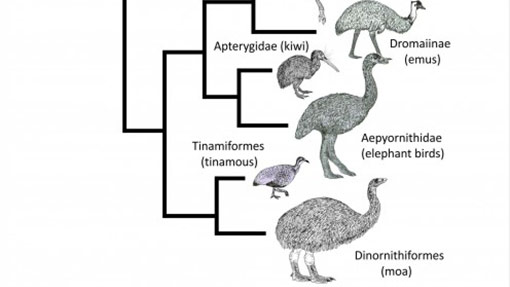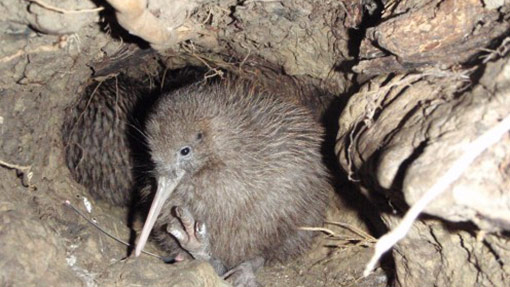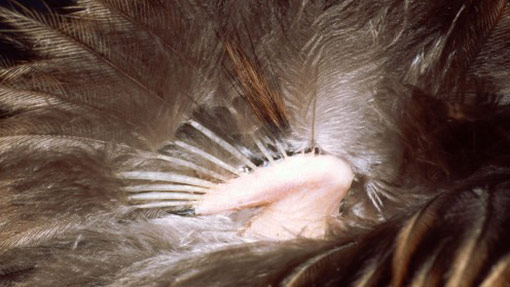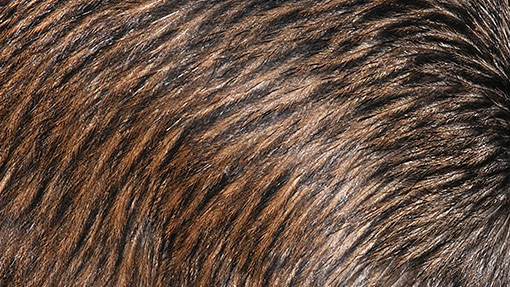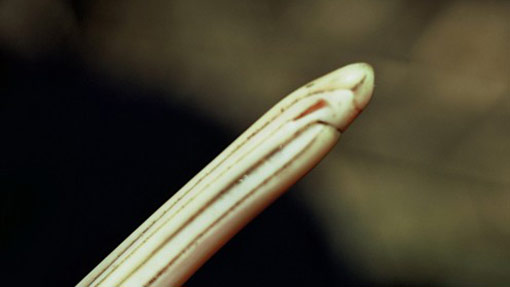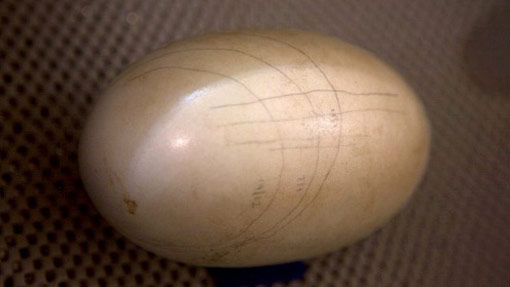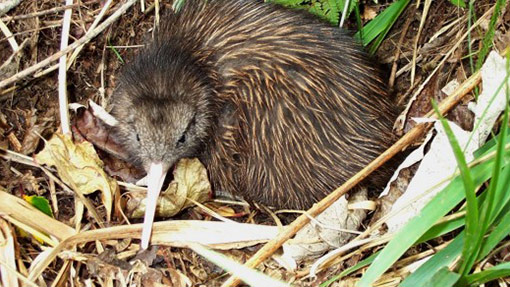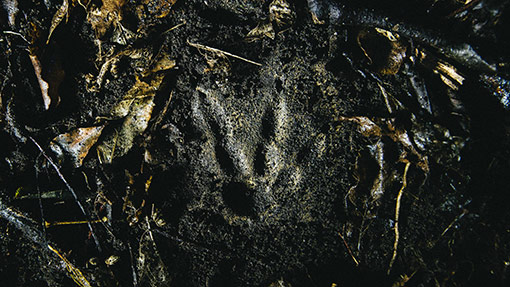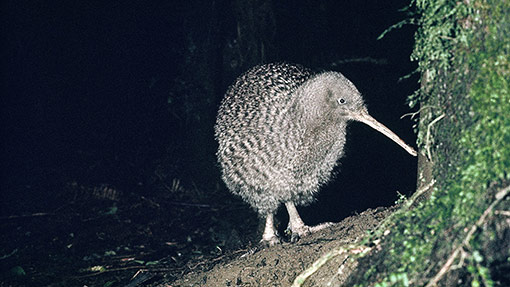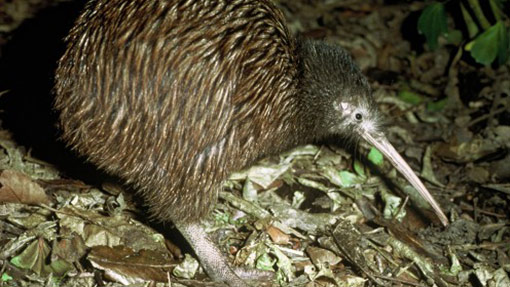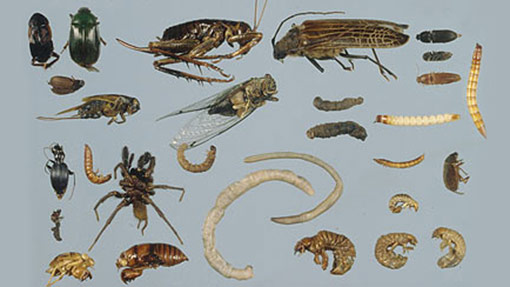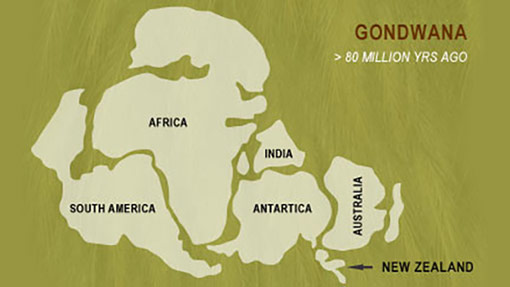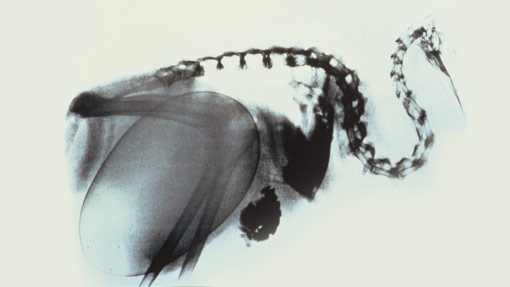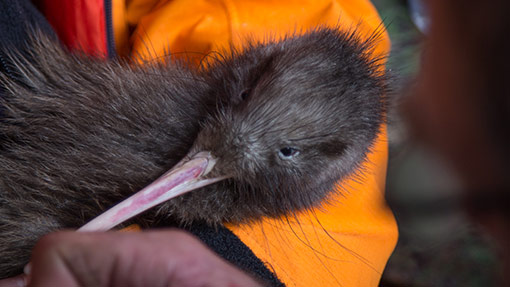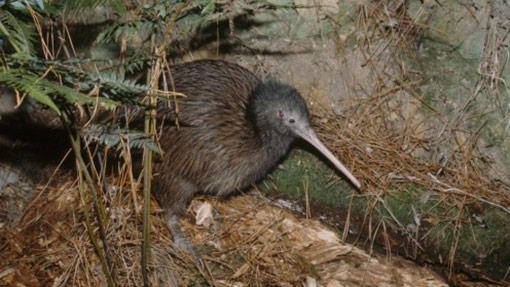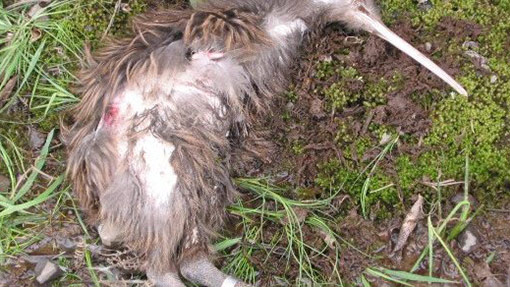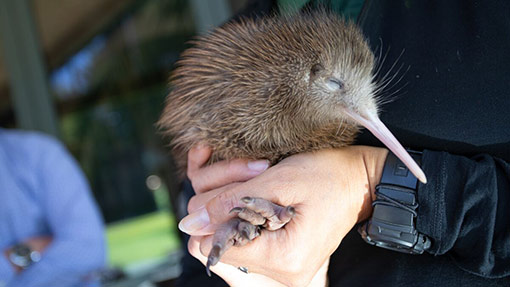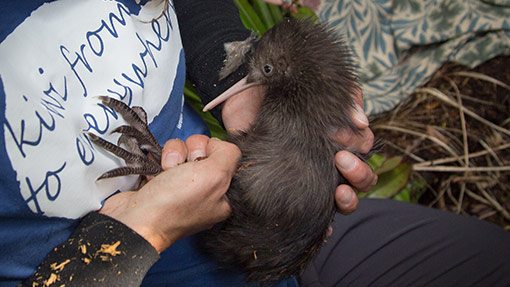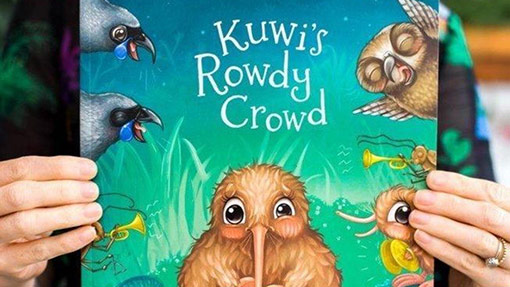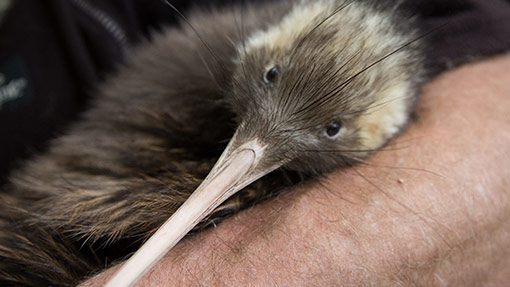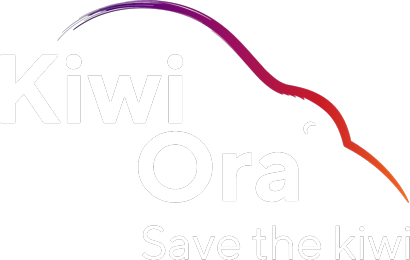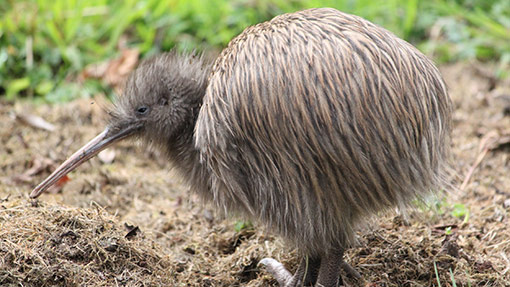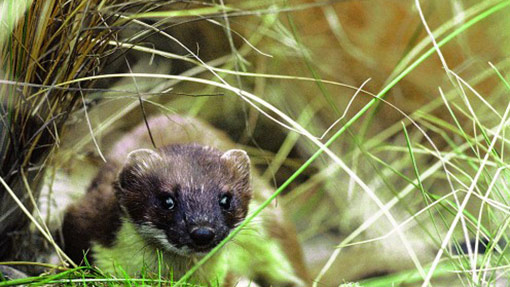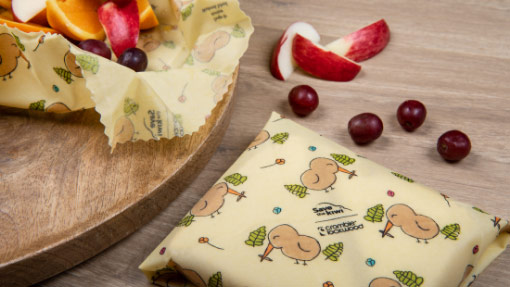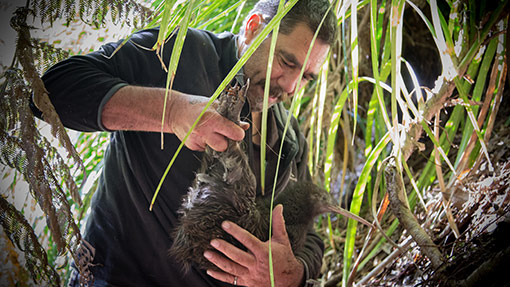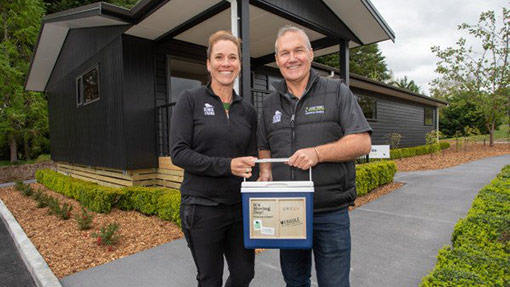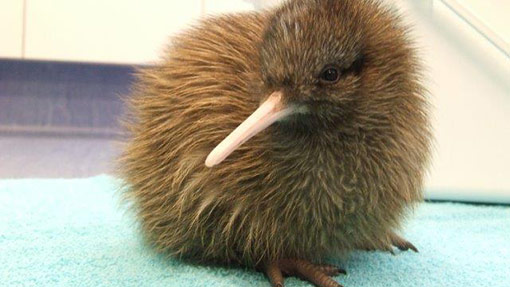In Māori tradition, all living things on Earth originate from the union of Rangi-nui (the Sky Father) and Papatūānuku (the Earth Mother). All creatures and natural resources are descendents of two of their children, Tāne-Mahuta and Tangaroa. Tangaroa’s children are the fish and other seas creatures, while Tāne-Mahuta created the forests and the birds. According to many traditions, the kiwi used to live in the canopy, not on the ground.
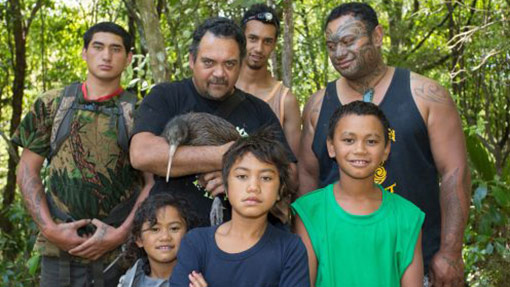
How the kiwi lost his wings
One tradition says that long ago, the ngahere flourished with life and the canopy was filled with birdsong. But insects from the ground crawled up and down the tree trunks, eating as they went, slowly killing the giants of the forest from the inside out.
Tāne-Mahuta and his brother Tāne-Hokahoka asked the birds of the air for a volunteer to leave the canopy and live on the ground to eat the bugs that were killing the trees.
Not a bird spoke, so each one was asked in turn.
Tūī refused. He was afraid of the darkness down on the ground, away from the sun. Pūkeko refused. He found the forest floor too cold and the earth too damp. Pīpīwharauroa, the shining cuckoo, also refused. He was too busy building his nest.
But Kiwi looked up at the sun filtering through the high leaves, down at the damp cold earth, and at his family, and he agreed.
Tāne-Mahuta was filled with joy, for this little bird gave him hope. But he felt he should warn Kiwi of what lay ahead.
“E Kiwi, do you realise you will have to grow thick, strong legs so that you can rip apart logs on the ground? That you will lose your beautiful coloured feathers and wings so that you will never be able to return to the forest roof? You will never see the light of day again.”
Still kiwi agreed.
Since then, Tūī has worn two white feathers at his throat, indicating his uselessness to Tāne Hokahoka. Pūkeko has lived forever in a swamp, with wet feet. And Pīpīwharauroa has never built another nest. Instead, the cuckoo always lays her eggs in other birds’ nests.
But because of his great sacrifice, Kiwi has become the most well-known and most loved bird of all.
Kiwi’s efforts in helping Tāne-Mahuta protect his forest from insect damage display the character traits New Zealanders still admire today: integrity, humility, loyalty, commitment, and courage.
Part of the ratite whānau
Kiwi are part of a group of largely flightless birds known as ratites. Ostriches, emu, and the extinct moa are also part of this group.
Honorary mammals
The kiwi is sometimes referred to as an honorary mammal because of its un-birdlike habits and physical characteristics.
The hidden bird of Tāne
In Māori tradition, all living things on Earth originate from the union of Rangi-nui (the Sky Father) and Papatūānuku (the Earth Mother).
Flightless ... but has wings
The kiwi is one of New Zealand's many flightless birds. They didn't need to fly because there weren't any land mammal predators before man arrived to New Zealand 1000 years ago.
Feathers like hair
Because kiwi do not fly, their feathers have evolved into a unique texture to suit a ground-based lifestyle.
An unusual beak
The kiwi has an extremely unusual beak. Not only does it provide a keen sense of smell, it also has sensory pits at the tip which allow the kiwi to sense prey moving underground.
Enormous egg
In proportion to its body size, the female kiwi lays a bigger egg than almost any other bird. While a full term human baby is 5% of its mother's body weight, the kiwi egg takes up 20% of the mother's body.
Kiwi life cycle
Kiwi make their home in many different environments and have been described as 'breeding machines'. With the eradication of predators, the kiwi could be successful once again.
Kiwi signs
Being nocturnal, kiwi can be quite elusive but they do leave signs as to where they have been.
Bird of the night
Kiwi are nocturnal. Like many other New Zealand native animals, they are most active in the dark.
Kiwi calls
Kiwi call at night to mark their territory and stay in touch with their mate. The best time to listen for kiwi is on a moonless night, up to two hours after dark, and just before dawn.
What kiwi eat
Kiwi are omnivores. Their gizzards usually contain grit and small stones which help in the digestion process.
How kiwi came to Aotearoa
Just how did the kiwi journey to New Zealand? Three very different theories have been put forward to explain the mystery.
How kiwi evolved
It is thought that today’s kiwi evolved from one kiwi ancestor that lived about 50 million years ago: a proto-kiwi.
Kiwi myths
Kiwi experts are keen to dispel myths surrounding the kiwi - and there are quite a few!
Learn more about kiwi
Kiwi species
All kiwi are the same, right? Wrong. There are actually five different species of kiwi, all with their own unique features.
Threats to kiwi
The national kiwi population is under attack from many different threats, including predators, loss of habitat, and fragmentation of species.
Where to see kiwi
Many facilities around New Zealand are home to kiwi, plus there are places where, if you're lucky, you could see one in the wild too.
How you can help
Many hands make light work. Keen to join the mission to save the kiwi? Here are some ways you can help.
Protect kiwi
For kiwi to thrive, we all need to work together. Find out what you can do to help save the kiwi, wherever in Aotearoa you happen to be.
Fundraise
To continuing saving the kiwi, conservation groups need funding. Support the mission by making a donation, setting up a fundraising project, or engaging with other fundraising initiatives.
Shop for kiwi
Show your support for Save the Kiwi and some of our wonderful sponsors by purchasing products that will help us do more of what we do.
Donate
Make a quick donation, donate a day of annual leave or invest to save the kiwi.

